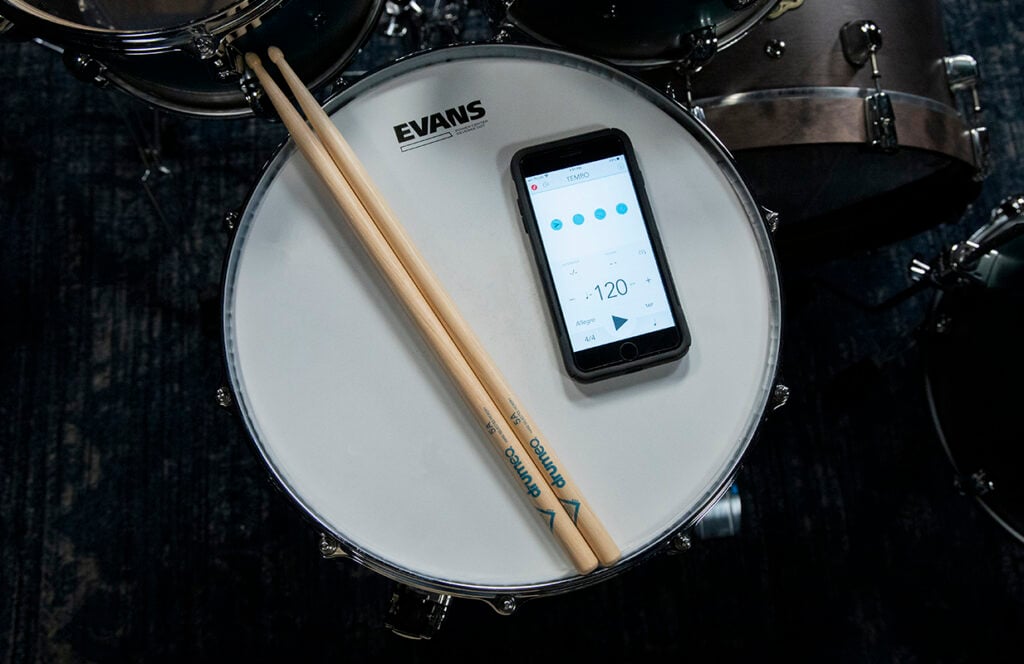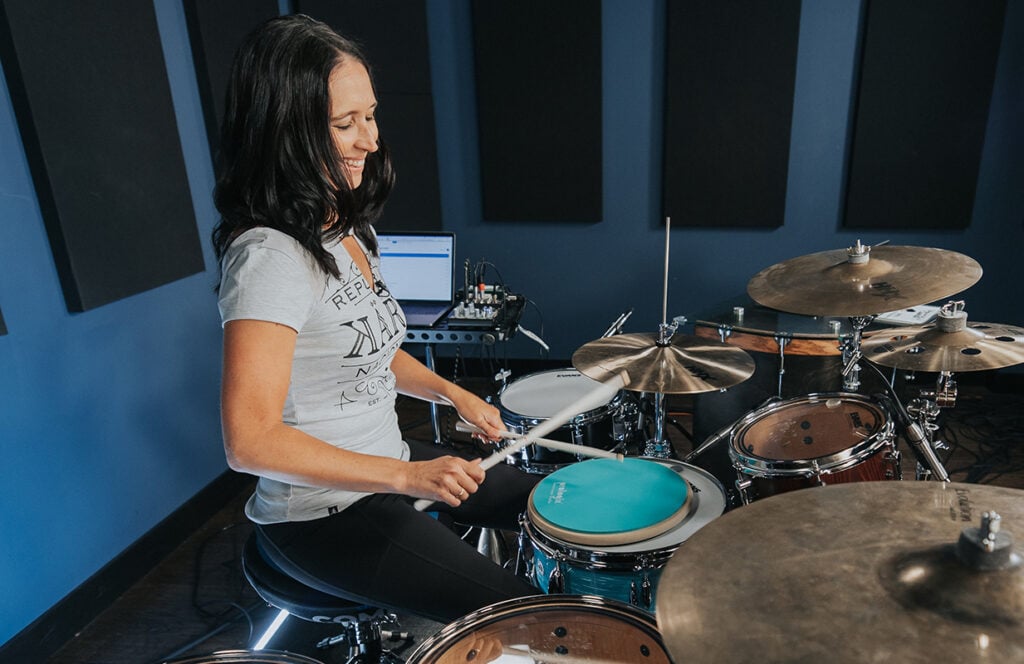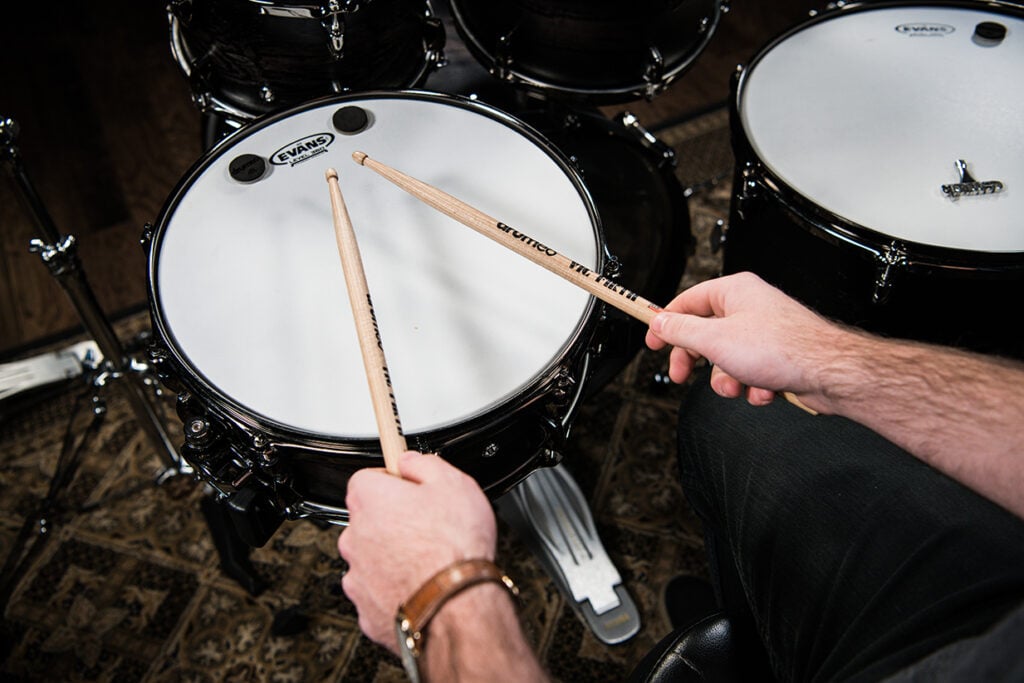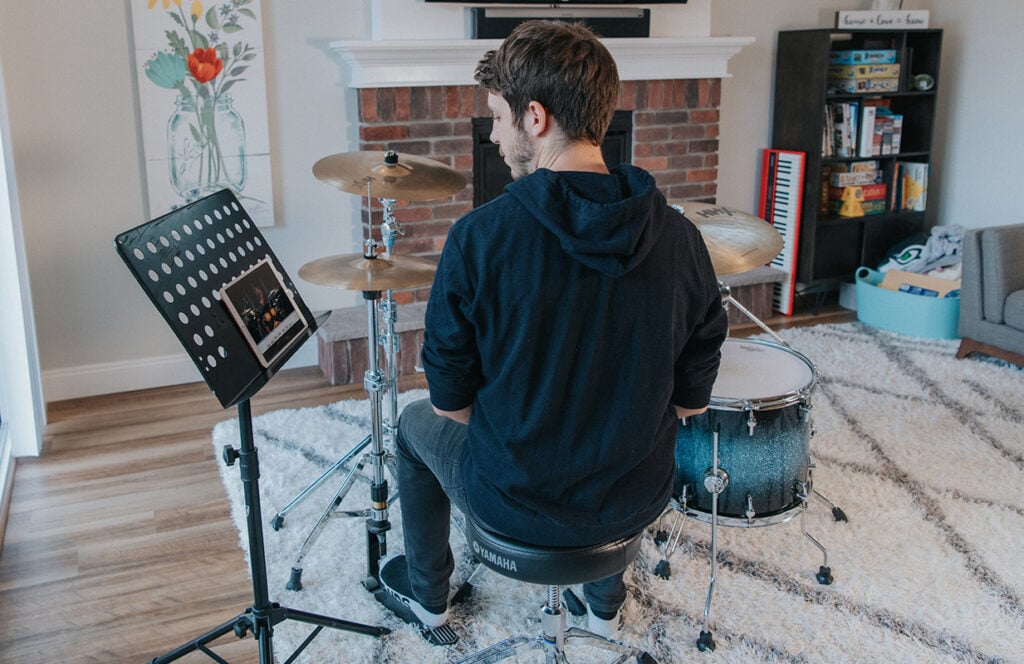The single stroke seven is a drum rudiment based on the single stroke roll. Played in groups of seven notes, you can find creative ways to incorporate it into drum fills, drum solos, and snare pieces.

Like a single stroke roll broken into pieces, the single stroke seven consists of seven-note groupings and makes for a nice flourish in drum rolls and fills.
It’s made up of six fast notes and one slow note, so it has the illusion of a brief pause between each grouping.
Here’s what the single stroke seven sounds like:
You can use this tool to practice along at the tempo that’s best for you (it’s the one Drumeo members use when practicing with the 3000+ play-along tracks inside our members area).
► Click here if you want to learn how to read drum music
While you might feel confident playing single stroke rolls, it might take some time to get used to the start/stop motion of the single stroke seven. Each grouping should feel and sound smooth and consistent.
Here are some tips to help you master this rudiment.

When you’re first learning how to play something, it’s fine to test it out without a metronome as you get used to the pattern. But you shouldn’t go click-free for long. The metronome will help you develop a better internal clock and show you exactly where the timing of your strokes is inconsistent (or where it’s right on the grid).
You can buy a physical metronome at a music store or download a metronome app online.

While it might be tempting to get up to speed as quickly as possible – especially if you’re feeling confident – make sure you’re really playing the rudiment well before you increase the tempo.
Be honest with yourself and don’t move on until you’ve really got it down. Don’t just say “it’s good enough”. Develop control first, and speed will come later.
Try starting with your metronome set to 60 BPM and then slowly work your way up 5 BPM at a time.

If you’re a right-handed drummer, you probably default to starting everything with your right hand. Try starting with your left hand, too. This will help you get a more consistent sound out of both sticks and give you more confidence and control.

It’s easiest to correct your posture or grip immediately if you’re watching yourself in a mirror. Try to set up a practice pad and a snare stand in front of a full length mirror if you can.
You’ll be able to notice if you’re gripping your sticks too hard, or if your stick height doesn’t look right. Use your reflection as a window into how you’re doing. It’s like becoming your own drum teacher!

While playing in front of a mirror will help you fix issues on the fly, you might not realize when something is wrong during your practice session. Sometimes we don’t notice issues while we’re in the middle of playing – especially if we’re concentrating hard.
Whether you’re propping your phone on your dresser or capturing it all with a camera and tripod, it’s helpful to watch your practice sessions and critique yourself from a ‘third party’ perspective.
We’ve put together a playlist with drumless tracks at different tempos so you can practice this rudiment over real music:
Once you’ve practiced on a pad and it’s feeling good, it’s time to move over to the drum set. Here are some exercises to get you started.
#1:
#2:
#3:
#4:
#5:
After working through these exercises, come up with your own ideas. Move the single stroke seven around the kit and try changing surfaces to get different sounds. This one sounds great on a tom or a cymbal!
Learn these tunes to get comfortable with this rudiment in practice:

One of the most recognizable drum parts of the 20th century, Ringo played a single stroke seven (and then some) on the toms in “Come Together”.

The single stroke seven is broken up between feet and hands, with the first six strokes on the bass drum and the seventh stroke on the snare drum. This one’s great for practicing your double bass control.

Switching between 16th notes and triplets here can be tricky.
Greatness takes time. With enough solid practice, you should start feeling more confident in your playing. Nailing the single stroke seven will give you one more tool in your toolbelt and get you one step closer to playing anything you want on the drums.
If you’ve enjoyed this rudiment, you’ll probably also like the single stroke four, which is – you guessed it – a roll consisting of groups of four strokes.


By signing up you’ll also receive our ongoing free lessons and special offers. Don’t worry, we value your privacy and you can unsubscribe at any time.
We use cookies for traffic data and advertising. Cookie Policy »